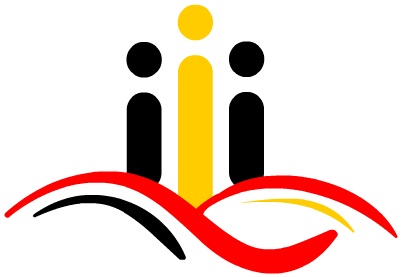by John Clarke
Giving Back
That the Aboriginal people were imposed upon by the white settlers who came to South Australia in 1836 cannot be questioned, but according to Gerhard Ruediger, Kaurna Administration Officer and Researcher at the University of Adelaide, that is not the whole story.
Gerhard Ruediger was the guest speaker at the recent meeting of the German speaking group Kaffee und Kuchen. He spoke of the Lutheran missionaries Clamor Wilhelm Schürmann and Christian Gottlob Teichelmann who arrived in South Australia in 1838 at the invitation of, and with the promise of support from, George Fife Angas, the patron of Pastor August Kavel and the early German settlers in the Adelaide Hills and Barossa Valley.
The hope of Angas and the administrators of the colony was that a Christian education would ‘civilize’ the Aboriginals, changing their way of life and making them useful, reliable workmen. But Schürmann and Teichelmann had different plans. They certainly wished to spread the Christian gospel, but they opposed assimilation and the disregard of Aboriginal law and the authority of the elders.
At the Dresden Mission Society their Greek and Latin studies had given them the love of language and the grammatical skills which served them well as they set out to record the languages of the people with whom they worked. The ability to communicate in the Aboriginal language assisted them in their missionary endeavours, but it also was a recognition of Aboriginal identity.
At first they worked with the Kaurna people of the Adelaide Plains, establishing a school where instruction was given in the Kaurna language. While Teichelmann continued to minister to the Kaurna (assisted after 1840 by Samuel Gottlieb Klose), Schürmann was offered land at Encounter Bay, but instead moved to Port Lincoln where again he learned the local language and set up a school for the Barngala people. The position at Encounter Bay was taken up by Heinrich August Eduard Meyer (later pastor of the Bethany Church in the Barossa Valley), another notable linguist, who recorded the language of the Ramindjeri.
With little support from the Government of the colony or aid from overseas the efforts of the missionaries proved finally largely unavailing. But they had unforeseen consequences. By the middle of the twentieth century the languages recorded by the four missionaries had ceased to be used; they had been replaced by English, fulfilling the desire of the early settlers for assimilation. However, in recent times growing pride in Aboriginal identity has led to renewed interest in those languages. The Kaurna language, dead for so long, is spoken once more. Through the work of the German missionaries over 150 years ago the Aboriginal people of South Australia are reclaiming their voice.
The next Kaffee und Kuchen meeting will take place on Monday, 25 October at the Langmeil Centre, 7 Maria Street, Tanunda, starting at 1 pm.
